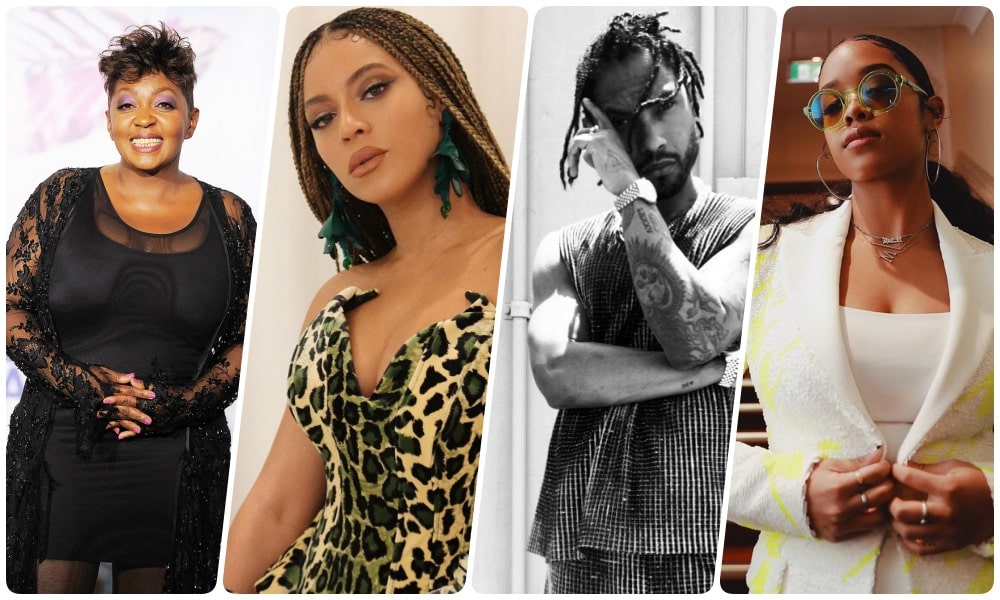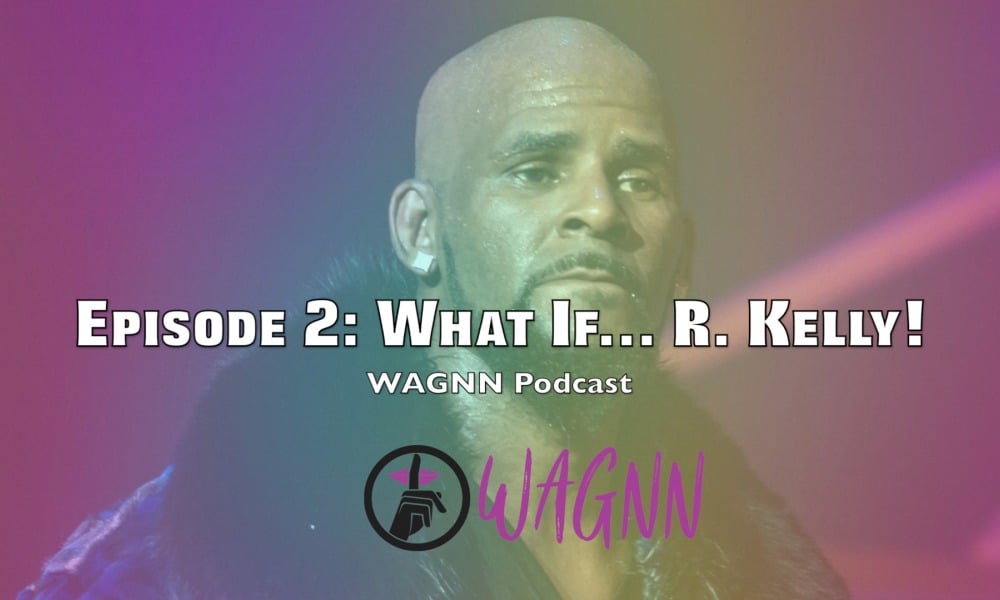With time and experience comes wisdom. Glenn Lewis has been away from the public eye but this does not mean that he was not focusing on his craft and evolving as a man and artist. He has been named as an artist that contributed to the Neo-Soul movement during the golden era of R&B. He is now back with a refreshed perspective and current sound that will captivate his fans and help to gain new fans. Mr. Lewis sat down to talk to us about everything from his mother’s curry chicken, his theory on the extinction of the black executive and superstar, evolving as an artist and more. Check it out for those that missed him during his time away.
Relevant … I have stayed relevant for the last few years with listeners. I have this conversation with a lot of different people that see me in the street, in a department store, or online. They miss my music and feel cheated because they only got one album out of me. They wanted to see how I would evolve, grow and develop as an artist. It feels good to be missed. It feels good to be in a position to have a new project out. Things are looking good I feel blessed right now.
Growth … I guess a part of evolution is being able to display growth. I think I have shown growth from the last project to now by my life experiences, the way I carry myself and how I choose to express myself … it comes naturally. My project touches on more intimate topics and it is a bridge between what I have been doing and what is current. It is not following trends but it is current with the production and style of today. It will be what they come to expect I think. I have become a stronger vocalist. Fans will be able to feel where I am coming from and where I have been in my interviews. It’s crazy to think that it was ten years ago. You have to get back into it gradually as an artist. I can’t just start wearing shiny suits out here.
Jerk or Curry Chicken … I would probably go the curry chicken route if it’s how my mom makes it because my mother is Trinidadian. However, my grandmother on my dad side gets it in too. She makes a mean stew beef or chicken soup with dumplings and yams.
R&B Vs. The Roots … I emerged myself so much in traditional R&B that I somewhat neglected Caribbean Reggae roots. I was studying the greats of R&B. The thing is I heard Soca, Calypso, Ska and other Caribbean sounds all the time. I was exposed to it so it was as much a part of me as anything else… it’s in my blood. It probably comes out automatically … second nature. I loved artist like Beres Hammond. I don’t think it is a conscious thing it probably comes out second nature it is always there.
Dad and Stevie … It’s funny I used to be skeptical about getting into the deeper aspects about my love for Stevie Wonder’s music because his influence goes deeper than the music. I partly didn’t make the connection when I was younger but I think as I matured I started to understand the importance in my life. My dad was a singer-songwriter who was in and out my life. I didn’t have a relationship with him like a lot of people don’t have relationships with their fathers … typical situation. I had him until the age of seven, and then I went to go live with my dad’s parents for two years, after I went to live with my mother in Trinidad. At the age of nine until the age of fourteen I went to Toronto so I didn’t have my dad around. Fourteen through sixteen is when I started to dig in and say music is what I want to do. I remember my dad sounding a lot like Stevie in regards to his tone.
The musicians that I liked were Boys II Men, Jodeci, Johnnie Gill, Bryant McKnight (first album) and GUY. Aaron Hall was everything! What is ironic is that everyone I mentioned was influenced by Stevie. Some of Stevie music I remember around the house. His music was very natural. It was a way for me to identify with my pop even though he was not around. Some of Stevie’s music I thought was my dad’s. The concepts of Stevie’s songs were how I perceived the world and how I saw myself in it. The two male figures that I looked to for mentorship because my father was not there was Michael Jordan and Stevie Wonder. I played ball everyday growing up. Basketball is almost on the same level as music.
My Players … Some of my favorite players have the complete package. I like players like Derrick Rose and Dwayne Wade. I like players that have physical presence and have the presence that is infectious to the rest of the team. We start talking about ball this interview is over. LOL!!!
Extinction of The Black Executive & Artist … There were plenty of times where as a culture things we did was cool … people went with it. Eddie Van Halen heard Jimi Hendrix and it was cool. Then you have R&B and people like Kenny Loggins and Michael McDonald who would do their thing and call it R&B. All of the sudden gradually after the last 10 years people are distancing themselves. The whole downloading era has affected what would be considered black music which is Hip Hop and R&B. Music is for universal consumption no matter what the origin is. I think John Lennon and Paul McCartney are incredible. I think Sting is a beast. Music is universal for universal consumption. The only genres that were affected during this downloading era were black genres but primarily R&B. I’m not trying to turn it into an adversarial thing and point out the adversary. However, I think from that angle in the entertainment industry I think there is an attack on black economics. There were so many successful artists in 80s and 90s such as Babyface, Puffy, earlier Luther Vandross and Whitney. It’s almost like someone said these people are getting too rich off of their catalogs. I don’t mean to make it a race thing but if I’m ignorant on the topic I welcome someone to correct me on it. Its the extinction of the black executive and the black superstar. There are artists that are out there like Jay-Z, Kanye West, Beyonce but those are few and far between. Who are the Stevie Wonders and the Luther Vandross’ of today? Don’t get me wrong Hip Hop is like the new rock and roll but what about R&B? People around the world appreciate the people that can sing. Why is Adele doing the numbers that she is doing and Jasmine Sullivan isn’t? I don’t understand it … I just don’t get it.
Maybe, I’m touching on a sensitive topic in the Western Hemisphere but the rules and parameters are not set up by us in regards to the music industry. I can talk about the music industry to a certain degree because that is what I know. I have been doing it all my life. The way it is set up are the gatekeepers let a few people in just to give everyone hope. Once in a while because of social media you may get a Frank Ocean that will pop up. There are probably only fifteen people that are really shining.
Glenn Lewis is talented and has a lot to say. We are excited to hear and see what he has in store.
You’re in for a treat as we delve into the mind of Glenn Lewis, the Canadian R&B singer known for hits like ‘Don’t You Forget It’ and ‘Fall Again.’
In a recent interview, he opened up about his thoughts on the extinction of the black superstar in the music industry, drawing from his own experiences and observations. Glenn Lewis sheds light on how hard it is for black artists to get recognition and success in today’s music world. He talks about how few black artists are able to achieve superstardom compared to their white counterparts.
This issue has been a long-standing problem in the industry that affects not just individual artists but also representation and diversity as a whole. As you read on, you’ll discover more insights from this talented musician on topics such as Stevie Wonder’s influence on his music, his Caribbean roots, and much more.
The Challenges Faced by Black Artists in the Music Industry
You’ve probably noticed that as a black artist in the music industry, you face a unique set of challenges that others don’t – it’s like trying to swim upstream. The sad truth is that the music industry has always been biased towards white artists, and this bias continues to exist even today. Black artists have to work twice as hard just to get half the recognition and opportunities that their white counterparts do.
One of the biggest challenges faced by black artists is the lack of representation in mainstream media. Even though black culture has had a significant impact on music, fashion, art and other aspects of popular culture, it is still underrepresented in mainstream media.
This means that black artists often struggle to get their work seen or heard by a wider audience. It also means that when they do break through, they are often pigeonholed into certain genres or styles.
Another challenge faced by black artists is racism within the industry itself. Many black musicians have spoken out about being discriminated against based on their race – from being told they’re ‘too ghetto’ for certain gigs or record labels, to being paid less than their white counterparts for doing the same job.
These kinds of biases can make it difficult for black artists to build careers in an already competitive field. However, despite these challenges, many talented black musicians continue to rise up and make waves in the industry – proving that talent will always shine through regardless of race or background.
Representation in Music: The Importance of Diversity and Inclusion
Diversity and inclusion play a crucial role in music, allowing for representation of various cultures and perspectives that enrich the art form. As music is a universal language, it has the power to connect people from different backgrounds and bring them together. The lack of diversity in the music industry can lead to a narrow representation of cultures and ideas, which limits its potential impact.
The importance of diversity and inclusion in music can’t be overstated. It allows for artists from underrepresented communities to have a platform to share their stories and experiences through their art. This not only helps create an inclusive environment but also promotes understanding and empathy among listeners.
When we listen to diverse voices, we broaden our perspective on life and learn about other cultures that may differ from our own.
Representation in music is essential for promoting diversity and inclusion in society as a whole. It allows us to celebrate differences while still finding common ground through the shared experience of music.
Therefore, it’s crucial that we continue supporting artists from all backgrounds while also encouraging new talent emerging from underrepresented communities. Let’s embrace the richness that comes with diversity so that everyone can feel seen, heard, valued, and included in the world of music.
Conclusion
So there you have it, dear reader. Glenn Lewis has shared with us his insights on the challenges faced by black artists in the music industry and the importance of diversity and inclusion in music representation.
It’s clear that the extinction of black superstars is a real issue that needs to be addressed if we want to see a more diverse and inclusive industry. Lewis also reminds us of the influence that greats like Stevie Wonder have had on their peers, as well as the impact of our cultural roots on our musical journey.
It’s up to us, as consumers and supporters of music, to demand and support diverse voices in the industry. Let’s celebrate our differences and uplift all artists who bring value to our lives through their artistry.








